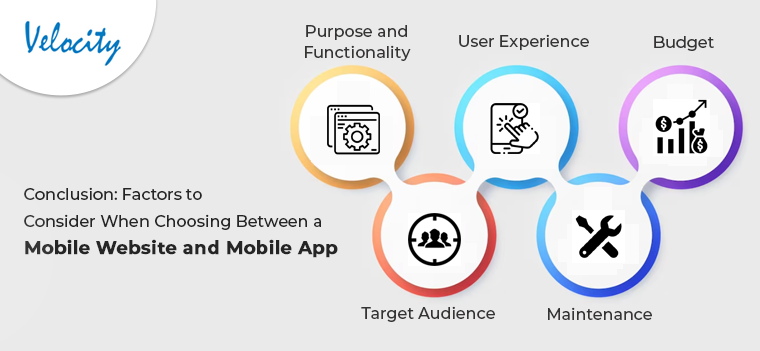In today’s digital era, a strong online presence is crucial for the success of any eCommerce business. As more and more people are preferring spending their time online via mobile devices. It’s important for businesses to consider mobile optimization.
Well, if we put mobile optimization on the table, the two most popular options for mobile optimization are mobile websites and mobile apps. While they both serve the same purpose of providing a mobile-friendly experience. There are significant differences between these two. Thus, following the same, in this article, we’ll explore the differences between mobile websites and mobile apps and help you decide which is right for your business.
Mobile Website: What Is It and How Does It Work?
A mobile website is like a miniaturized version of a regular website, designed to fit and function on small mobile devices such as smartphones and tablets. Mobile websites are built using responsive web design principles. When a user visits a mobile website, they’ll see a website optimized for mobile devices and all screen sizes. The Mobile website will have a streamlined design, with a simple and easy-to-use interface. Furthermore, users can access mobile websites via a mobile web browser, such as Safari or Chrome.
How Mobile Apps are different?
A mobile app, on the other hand, is a software application specifically made for mobile devices. Unlike a mobile website, users can download and install a mobile app is on Android or iOS devices.
After downloading, the users can explore the mobile apps directly from the home screen. Mobile apps are designed to be highly interactive and provide a more immersive experience than mobile websites. Moreover, the Android and iOS App development technologies are completely different from the mobile websites. Where the apps use the app development languages such as Flutter, Java, and Swift (for iOS Apps). On the other hand, mobile websites use other web development technologies such as HTML5, React JS, PHP web development, etc.
The Advantages of Mobile Websites:
One of the biggest advantages of mobile websites is that they’re accessible to anyone with a mobile device and an internet connection. Users don’t need to download anything to access a mobile website. The users simply need to open their mobile web browser and enter the website’s URL. If we consider the development cost for both, eCommerce mobile website development is easier and pocket friendly to develop than mobile apps. As mobile websites use responsive web design principles, mobile websites are perfectly fit for all screen sizes and resolutions.
Comparison with Mobile Apps:
Mobile app development has several advantages over mobile websites. One of the biggest advantages is that they provide a more immersive and interactive experience. Since the Android and iOS Apps are installed directly on a user’s device. The users can take advantage of the device’s hardware and software features. For example, a few are the camera, GPS, and push notifications. Mobile apps also have the ability to work offline, which means users can access them even when they don’t have an internet connection.
Conclusion: Factors to Consider When Choosing Between a Mobile Website and Mobile App!!
When deciding whether to choose mobile website development or mobile app development, there are several factors to consider. Thus, we have covered some of the most important factors:
1. Purpose and Functionality:
What is the purpose of your website or app? Are you providing information, selling products, or offering a service? The purpose of your website or app will determine whether a mobile website or a mobile app is the best option.
2. User Experience:
Consider the user experience you want to provide. Do you want to provide a more immersive and interactive experience? If so, a mobile app may be the better option. If you want to provide a more streamlined and simplified experience, a mobile website may be the better option.
3. Budget:
Consider your budget. Mobile apps are generally more expensive to develop than mobile websites. If you have a limited budget, a mobile website may be the better option.
4. Target Audience:
Consider your target audience. If your target audience is primarily using mobile devices, a mobile app may be the better option. If your target audience is primarily using desktop devices, a mobile website may be the better option.
5. Maintenance:
Consider the maintenance required for both options. Mobile apps require regular updates. We hope you have enjoyed all the amazing information.
Moreover, in regard to queries or Mobile App development requirement discussions, we will be more than happy to find you at [email protected].










